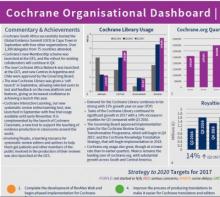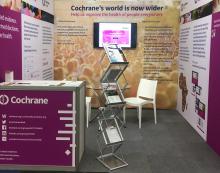Announcing the full launch of Cochrane Interactive Learning

Cochrane is delighted to announce the full launch of all nine modules of its new online introductory training course on how to conduct a systematic review of interventions, available at interactivelearning.cochrane.org.
Cochrane authors and other producers of systematic reviews from across the world will be able to access self-directed learning on framing a review, searching for studies, risk of bias assessment, meta-analysis, GRADE, and the complete systematic review process, developed by world-leading experts in systematic review methods
New learners will have the chance to embark on modular, interactive training on how to produce systematic reviews, and experienced authors can refresh their skills with the latest guidance and best practice.
Cochrane Interactive Learning offers dynamic, flexible, and engaging content with nine modules and over 100 bite-size learning units, building knowledge for new and existing authors one step at a time. They provide clear explanations with stimulating interactions, quizzes, animations, examples, and reference resources, and enable learners to tailor their learning experience, in their own time, and from anywhere in the world, from a laptop, tablet, or phone.
The course will also serve educators in evidence-based health care, providers of professional development to researchers or health professionals, researchers within guideline development or HTA settings, commercial research organizations, and commissioners of systematic reviews who rely on rigorous methods to make evidence-informed decisions.
One early adopter of Cochrane Interactive Learning says, “This learning tool is absolutely brilliant and of high quality… [and] would offer all researchers a unique opportunity to learn how to conduct high-profile scientific reviews and...undoubtedly enhance our scientific output."
Module 1: Introduction to conducting systematic reviews will remain free to all learners.
Cochrane Authors will have free access to all the Cochrane Interactive Learning modules, as will Cochrane editorial teams and Group staff (see here for a complete list). Residents of WHO Hinari A and B countries will also be eligible for free access.
Other users will be able to take out a paid subscription (personal or institutional), with Cochrane Members eligible for a discount on personal subscriptions.
Find out more:










